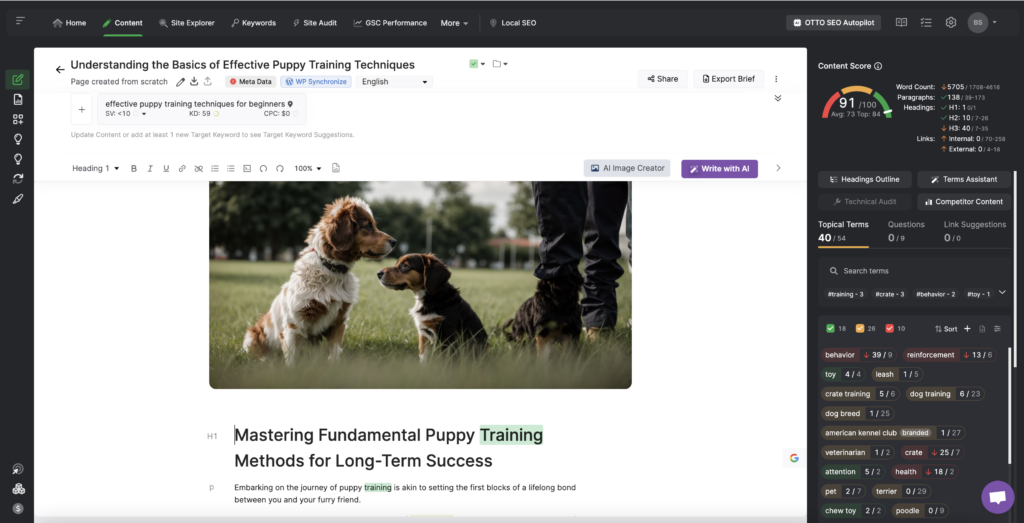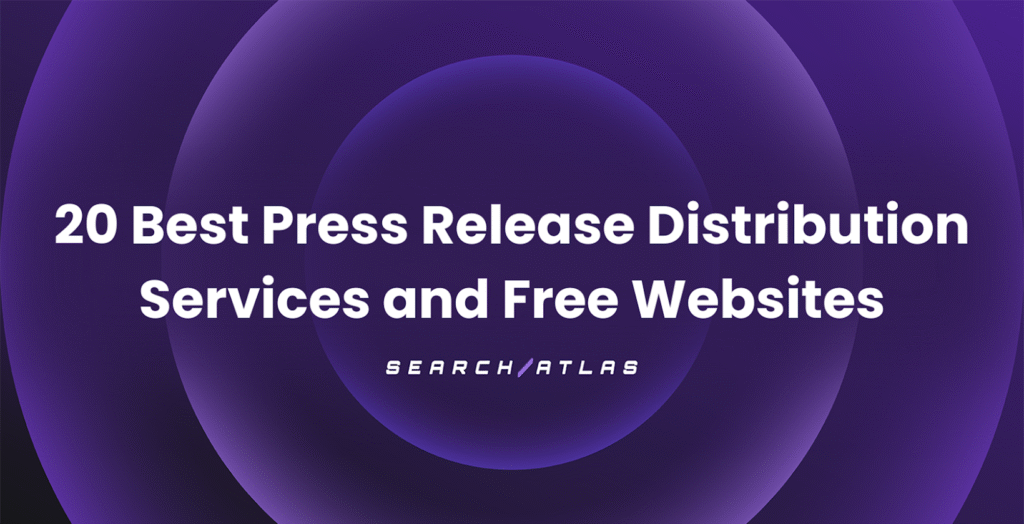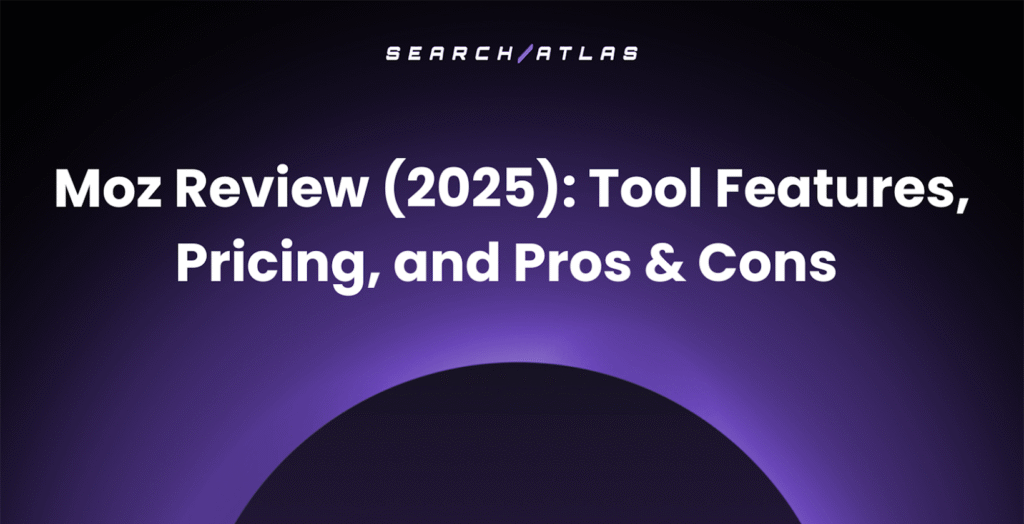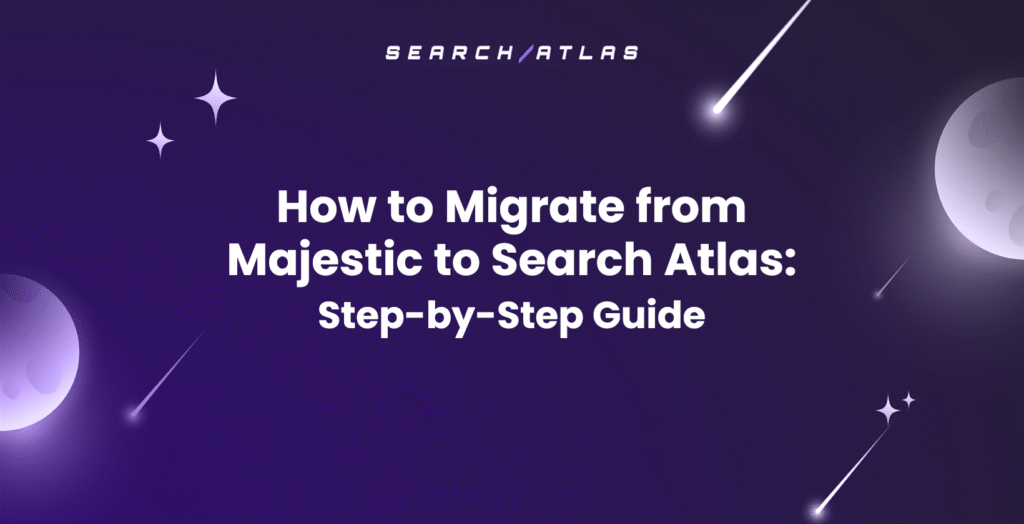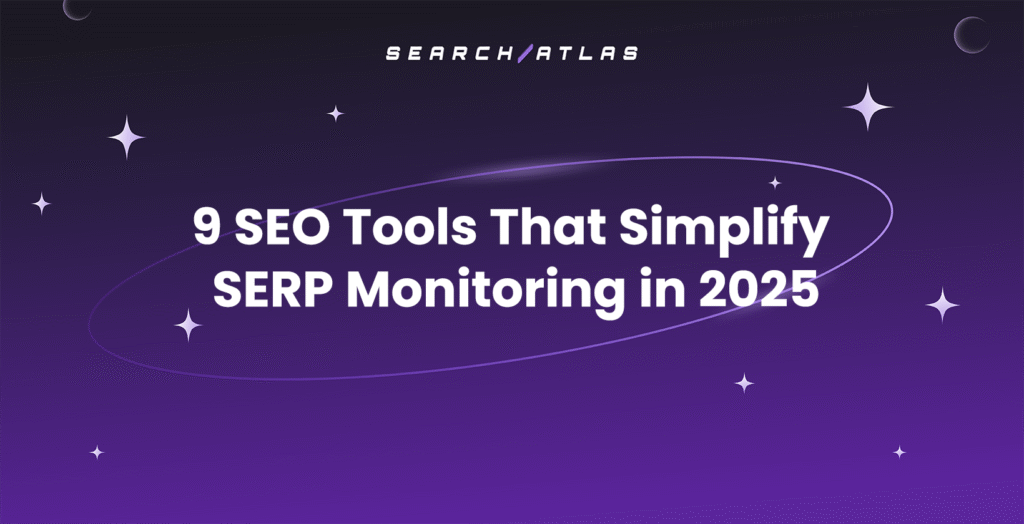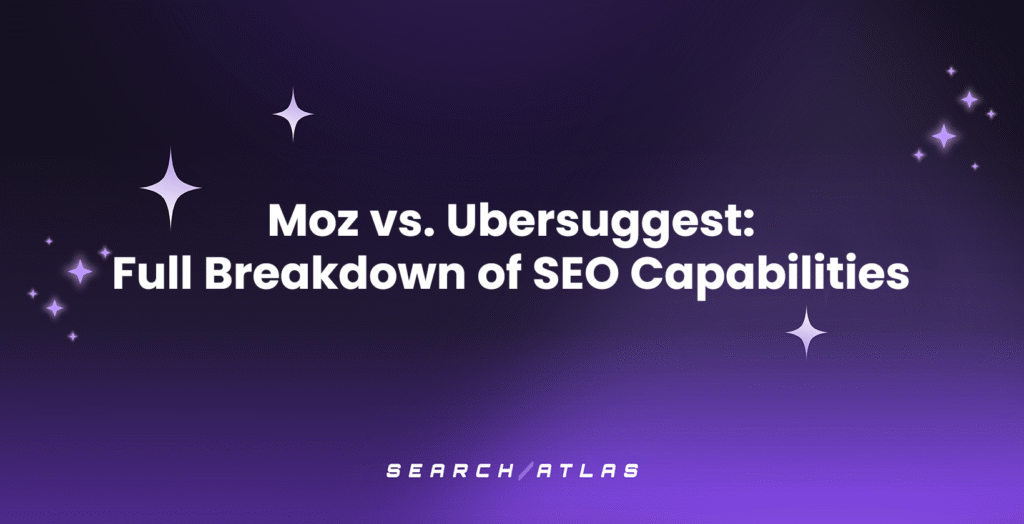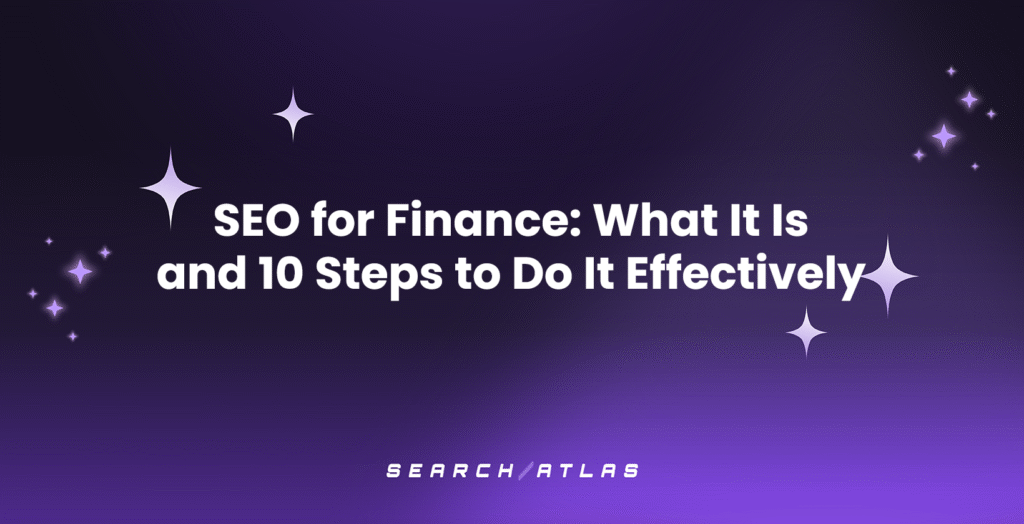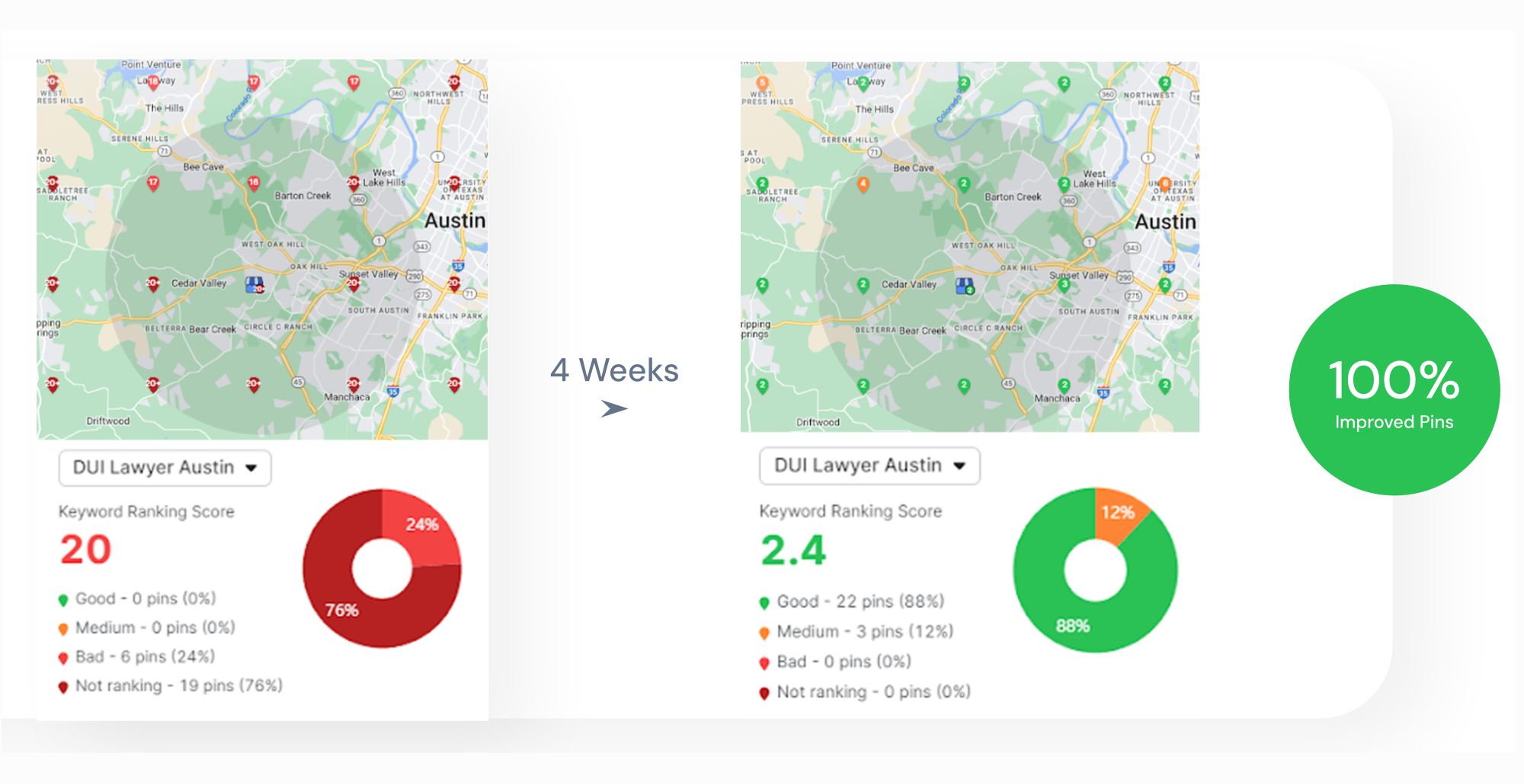Paid ads can take a small business from surviving to scaling, but picking the right platform is crucial.
With so many advertising options out there, most businesses find themselves choosing between the two biggest players: Google Ads and Facebook Ads. Which one delivers better results? Which one is actually worth your budget?
We’re going to break down what Google Ads and Facebook Ads are, how they differ, and how to get the most out of them with PPC tools.
What is Google Ads?
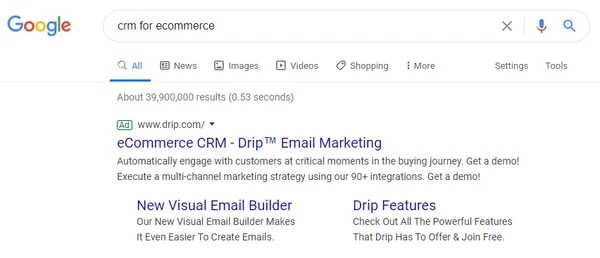
Google Ads is an online advertising platform where businesses bid on keywords to have their ads appear in Google search results and across its Display Network.
It operates on a pay-per-click model, meaning advertisers only pay when users engage with their ads.
When someone searches for a product or service, Google runs an auction to determine which ads appear and in what order. Search ads show up alongside organic results, while Display Network ads appear on websites, apps, and YouTube.
The platform allows businesses to target specific audiences based on search intent, demographics, and browsing behavior. While automation helps optimize campaigns, advertisers still need to monitor performance and adjust strategies.
Essentially, Google Ads gives businesses a way to capture attention at the right moment—when potential customers are already looking for solutions.

Adwords Features
Google Ads features are designed to help businesses reach the right audience, optimize ad performance, and maximize return on investment through targeted placements, automation, and detailed analytics.
- Massive Audience Reach: Google processes billions of searches daily, making it one of the largest advertising networks. If your audience is online, they’re likely searching on Google.
- High-Intent Targeting: Ads appear when users are actively searching for solutions, meaning they’re more likely to convert compared to passive social media browsing.
- Diverse Ad Formats: Run text ads in search results, product-based Shopping ads, video ads on YouTube, or display ads across millions of websites to match different marketing goals.
- Smart Bidding and Automation: Google’s AI-powered bidding strategies optimize bids in real time, helping advertisers maximize conversions while staying within budget.
- Detailed Performance Insights: Track ad performance with in-depth analytics, allowing you to measure ROI, adjust targeting, and refine campaigns for better results.
- Local and Global Reach: Whether targeting a specific city with Local Services Ads or expanding internationally with Performance Max campaigns, Google Ads adapts to different business needs. You can use local SEO tools to maximize your results.
Google Ads Pricing
With Google Ads, you pay per click, meaning you’re charged only when someone actually clicks on your ad.
This is called Cost Per Click (CPC), and it varies based on factors like competition, your bid, and the quality of your ad. For highly competitive industries, like legal services or insurance, CPCs can reach $50 or more.
Meanwhile, in less saturated markets, like home decor or fitness products, clicks might cost just a few dollars. Since you’re paying for traffic, not guaranteed sales, success depends on targeting the right audience.
What is Facebook Ads?
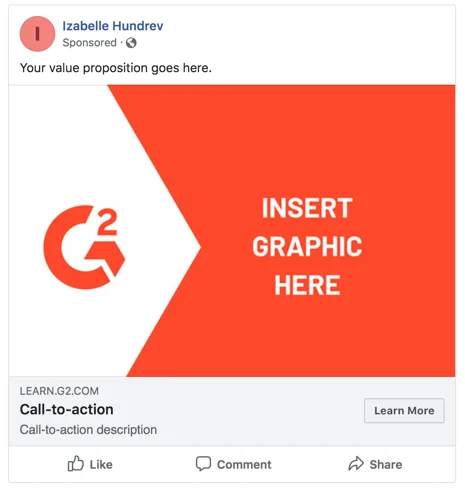
Facebook Ads (now part of the Meta Ads platform) is Meta’s advertising system that runs across Facebook, Instagram, Messenger, WhatsApp, and its wider Audience Network.
Unlike Google Ads, which captures people actively searching for something, Facebook Ads is about creating demand, showing ads to users based on their interests, behavior, and demographics, even if they weren’t looking for your product in the first place.
Meta’s strength lies in its vast pool of personal data, allowing advertisers to target users with uncanny precision.
Ever noticed an ad for something weirdly specific after just thinking about it? That’s Facebook Ads at work. It builds interest, nurtures impulse purchases, and keeps products in front of people until they finally click.
Facebook Ads Features
Facebook Ads gives businesses access to a massive user base across Facebook, Instagram, Messenger, and WhatsApp:
- Advanced Targeting Options: Facebook allows advertisers to target users based on demographics, interests, behaviors, life events, and connections, making it one of the most precise ad platforms.
- Lookalike Audiences: Advertisers can find new potential customers by targeting users similar to their best existing customers.
- Visual-First Ads: With image, video, carousel, and story formats, Facebook Ads offers more creative flexibility than Google’s text-based search ads.
- Lower Cost of Entry: Facebook Ads generally allows for lower daily budgets than Google Ads, making it more affordable for smaller businesses.
- Retargeting Capabilities: Facebook’s pixel tracking lets businesses re-engage users who’ve visited their site or interacted with their ads.
- User-Friendly Interface: Meta Business Manager simplifies campaign setup and management, making it easier for beginners to run ads effectively.
Facebook Ads Pricing
Facebook Ads pricing varies based on targeting, industry, and ad performance. Typically, you’ll pay $0.50 to $2.00 per click (CPC) or $5 to $12 per 1,000 impressions (CPM).
Competitive industries like finance may cost more, while e-commerce could see lower CPCs. For conversions, expect $5 to $50+ per acquisition. Start small, test, and optimize to get the best results within your budget.
Comparing Google Ads and Facebook Ads: What You Need to Know
We’ll compare Google Ads and Facebook Ads to help you decide which one is better for your business. Later, we’ll also cover how to make the most of both platforms to maximize your results.
1. User Intent

User intent for Google Ads is focused on immediate needs. People search for specific solutions, like “emergency plumber” or “pizza near me,” with the intent to act quickly. Google Ads targets these high-intent keywords, allowing businesses to reach users who are ready to make a purchase or use a service right away.
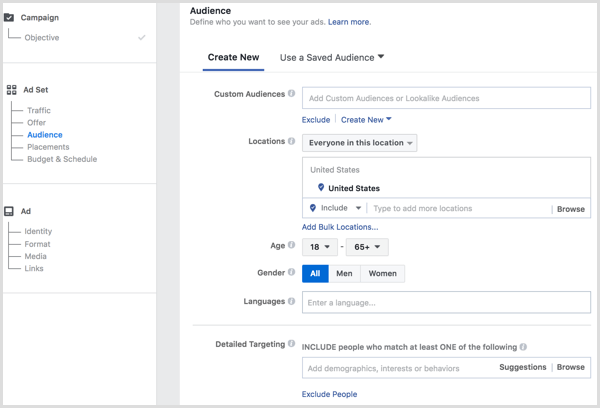
Facebook Ads, however, targets users in discovery mode. People aren’t actively searching for solutions but are passively browsing. Facebook Ads introduce products to users who may not know they need them, sparking interest and creating demand.
Winner: Google Ads
Google Ads is better for capturing immediate demand. Users are actively searching for solutions and ready to act. In contrast, Facebook Ads targets users who are in a more passive, discovery-based mindset.
2. Targeting
Google Ads targets users based on keywords and search intent, refining the audience by location, device, browsing patterns, and more. Keywords remain central to Google’s targeting approach.
Facebook Ads target users through detailed data on demographics, interests, and online behaviors. This allows businesses to reach potential customers based on their lifestyle, preferences, and activities.
Winner: Facebook Ads
Facebook Ads is better for creating demand and reaching a broader audience based on interests, even when they aren’t actively searching.
3. Ad Formats
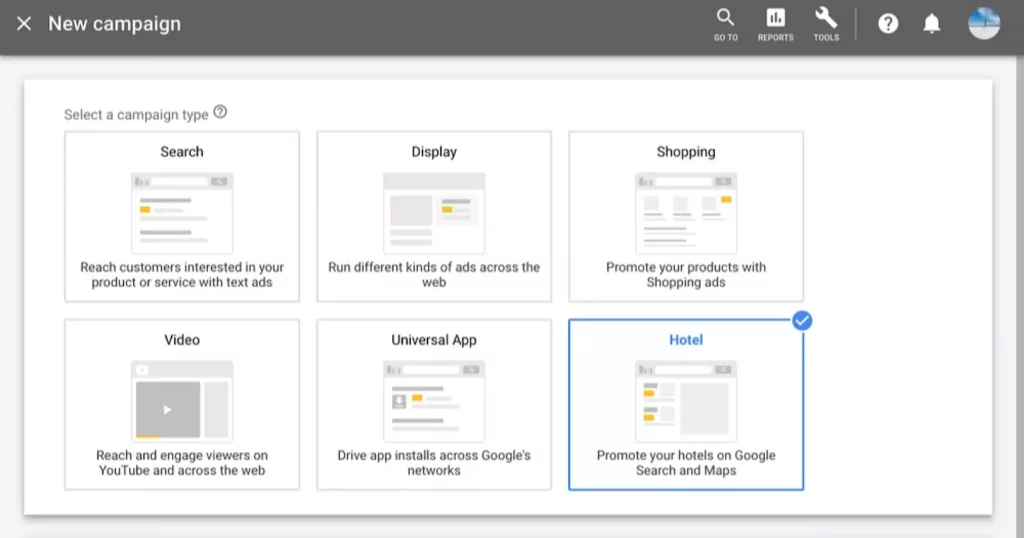
Google Ads primarily uses text-based ads, though you can also run visual ads through the Display Network, Google Shopping, and YouTube, allowing for some versatility in ad formats.
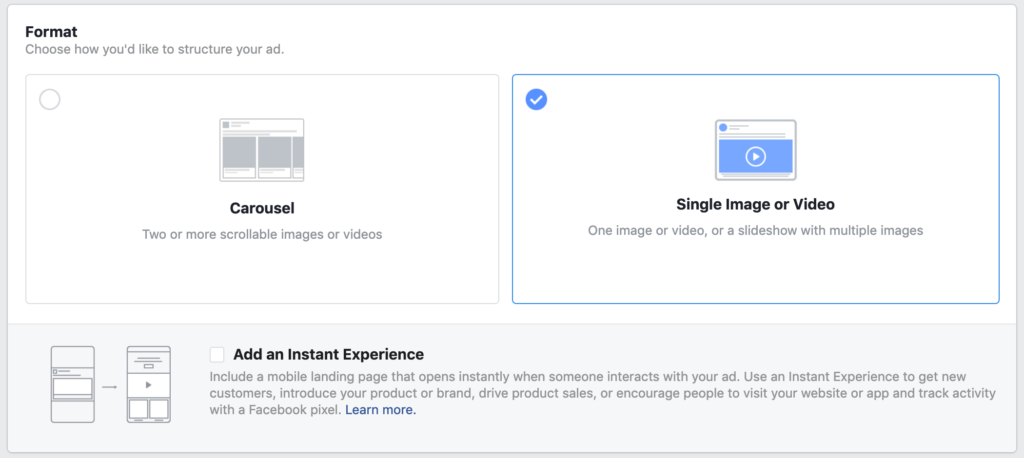
Facebook Ads focus on visually engaging formats, including images, videos, carousel posts, Stories, and Reels. These dynamic formats are designed to capture attention within users’ feeds.
Winner: Google Ads
Google Ads offers more variety and channels, including search ads, display ads, shopping ads, and video ads on YouTube, giving you multiple ways to reach users across different platforms.
4. Reach
Google Ads has an intent-based reach, targeting users actively searching for specific products or services, reaching over 4.9 billion users globally who are looking for solutions right now.
Facebook Ads has an interest-based reach, targeting users based on their demographics, interests, and behaviors, with a massive audience of about 3 billion monthly active users.
Winner: Google Ads
Google Ads is better with 4.9 billion users, reaching a larger portion of the global internet population compared to Facebook’s 3 billion.
5. Cost
Google Ads reaches users actively searching for specific solutions, leveraging high-intent queries that often result in higher cost-per-click, but typically with a stronger potential for immediate conversions and higher return on ad spend.
Facebook Ads reaches users based on interests and behaviors, often at a lower cost-per-click, but may require more impressions and longer time to convert passive scrollers into customers.
Winner: None of the options
Neither Google Ads nor Facebook Ads will deliver results without the right tool. Using an external tool with AI can help optimize your campaigns, deploy cost effective strategies, and maximize your return on investment, ensuring better targeting and efficiency.
Google Ads vs Facebook Ads: The OTTO Advantage in Driving Results
OTTO Google Ads is the ultimate tool to make your Google Ads work harder for you. It simplifies targeting, messaging, and bidding, using AI to get you better results with less effort.
What Is OTTO Google Ads?

OTTO Google Ads, powered by AI from Search Atlas, simplifies Google Ads campaigns with just a few clicks. It analyzes your website, chooses the most effective keywords, organizes your ad groups, and creates optimized ad copies, allowing you to launch high-performing campaigns effortlessly.
What Tasks Does OTTO Google Ads Automate?
The tool removes the complexity from running ads by automating tasks like campaign setup and ad copywriting. OTTO Google Ads intelligently structures your campaigns, selects the best keywords, and writes ads tailored to your business goals, ensuring optimal results with minimal effort.
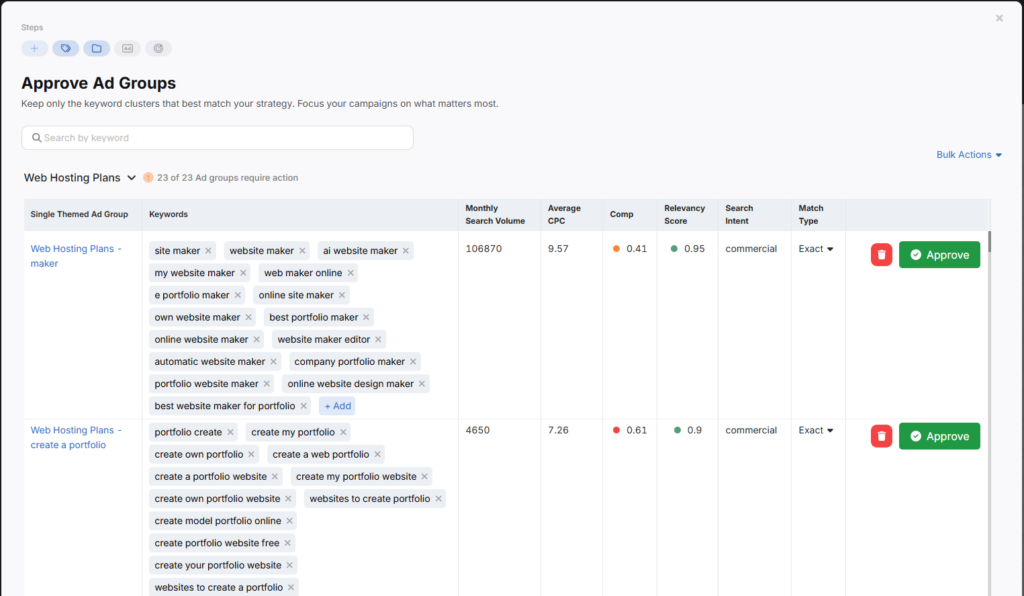
It stands apart from traditional PPC tools by leveraging advanced AI to streamline and enhance your paid advertising process, making it quicker, easier, and more effective.
How Does OTTO Google Ads Recommend Strategies?
With OTTO Google Ads, you simply link your website and Google Ads account. Its machine learning technology quickly identifies the best campaign structure, keywords, and ad copywriting tools, continuously optimizing your ads to improve relevance, increase click-through rates, and boost conversions, all while maximizing your ROI.
Search Atlas Pricing
Search Atlas offers OTTO Google Ads and other powerful tools at a competitive price, providing more value than any other platform.
| Starter plan | Growth plan | Pro plan | Enterprise | |
|---|---|---|---|---|
| Price: | $99 monthly | $199 monthly | $399 monthly | Custom |
| Free OTTO SEO Activation | 1 | 1 | 3 | Custom |
| User Seats | 2 | 3 | 5 | Custom |
| GSC Sites | 5 | 15 | Unlimited | Custom |
| GBP Accounts | 3 | 10 | 25 | Custom |
| Regular AI Quota | 100 | 250 | Unlimited | Custom |
Google Ads vs Facebook Ads: Stop Wasting Time, Let AI Handle It
Google Ads and Facebook Ads each serve a unique purpose, but success isn’t about picking one over the other, it’s about strategy. ♟️
Instead of constantly switching between platforms, focus on optimizing your campaigns with the right tactics, like mastering negative keywords, refining targeting, and choosing the best bidding strategies.
Or, let OTTO Google Ads handle it for you. It automates campaign creation, fine-tunes ad performance, and executes winning strategies in minutes—not hours—so you get the highest return with minimal effort.
Give OTTO Google Ads a spin, FREE to try today, no strings attached. Smarter campaigns, better results, zero hassle. ⚡


